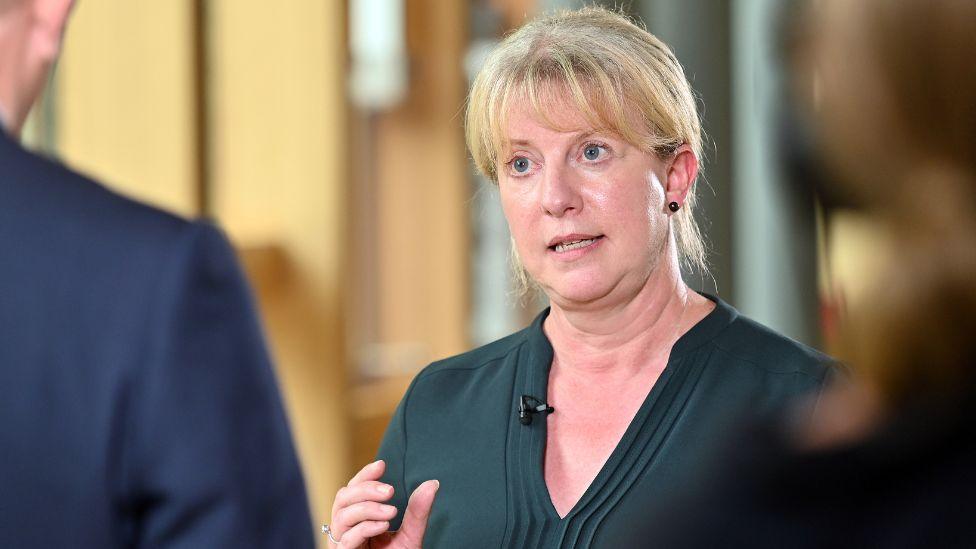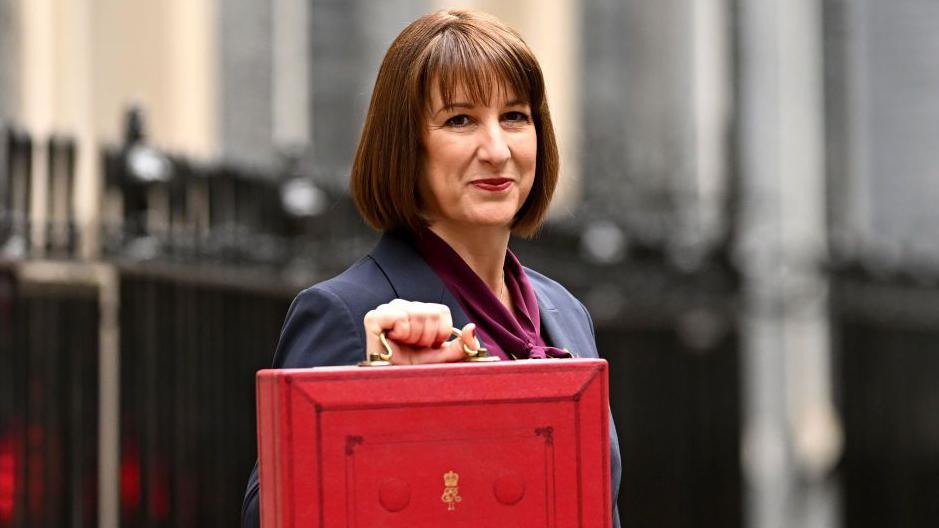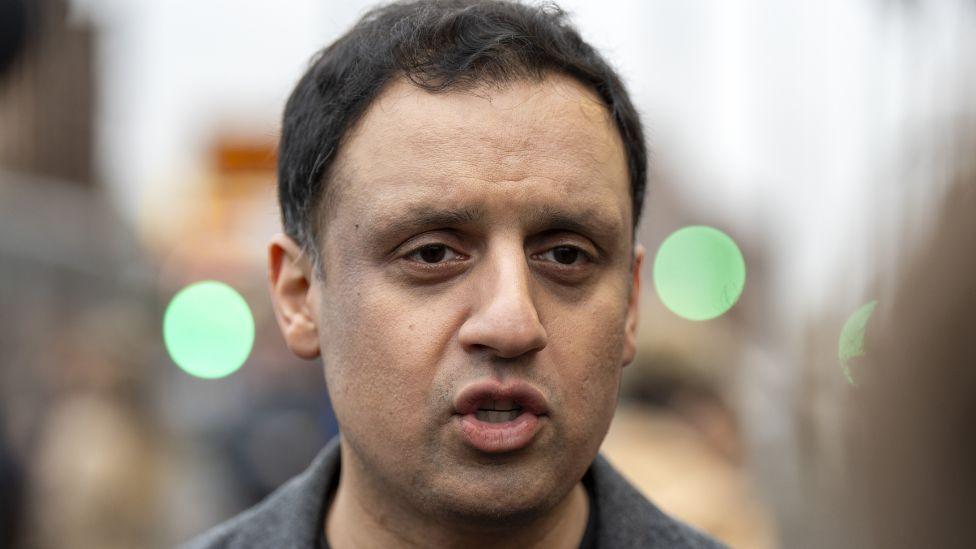Extra £300m for UK tax hike unacceptable - Robison

SNP minister Shona Robison says the Scottish government will be left £200m short
- Published
Scottish Finance Secretary Shona Robison has warned a £300m increase in UK government funding is "simply not good enough" and will not cover a planned rise in employer National Insurance contributions.
Treasury officials in London are said to have told their counterparts in Edinburgh that they should receive between £295m and £330m extra to pay for additional public sector staff costs.
A UK government source told BBC Scotland News there is "hundreds of millions of pounds" heading to Holyrood.
However, Robison said more than £500m would be needed to cover the staff costs of those directly employed by in the public sector, rising to £750m when indirect employees such as those in childcare, colleges or social care are included.
'Unacceptable'
She told BBC Scotland News: "This cannot stand.
"The UK government Treasury will need to think again on this to make sure that Scotland’s public services are fully funded for the employers’ National Insurance contribution and we’ll be pursuing the Treasury very rigorously about this point.”
The UK government is believed to have used the Barnett Formula – designed to give devolved nations a proportionate share of spending in England – to reach the £300m figure.
However, Robison described that total as "unacceptable" and “very low” based on the Scottish government’s projections using the same formula.
“We can’t have a situation where the UK Labour government gives resources with the one hand through [Barnett] consequentials but takes away with the other through not fully funding the employers’ National Insurance contributions," she said.
SNP had raise fears that they could be short changed because Scotland has a larger public sector when compared proportionally to the UK as a whole.
The finance secretary said it should be viewed as a positive that Scotland proportionally employs more teachers, nurses and police officers and should not be “punished” for doing so.
She has called for clarity from the UK government on the amount of compensation it will receive ahead of the Scottish Budget, which is due to be announced next Wednesday.

Chancellor Rachel Reeves announced a hike in employer's National Insurance in the autumn Budget
Chancellor Rachel Reeves announced the National Insurance change in the UK Budget last month to boost public service funding.
Reeves said Scotland would receive £3.4bn in additional funding in 2025-26 when she laid out her tax and spending plans - though this did not include compensation for National Insurance.
The UK government source said the extra £300m would mean the Scottish government had "no more excuses".
They added: "Scots expect delivery from the SNP and to use this money to reduce NHS waiting times and raise attainment in our schools - not fill in a budget black hole created by years of financial mismanagement and waste."
The Scottish government is also set to receive an additional £1.5bn for this financial year, 2024-25 - though it said this was in line with its budget expectations.
Treasury must compensate Scotland for tax hike - Robison
- Published31 October 2024
When is the Scottish Budget and what will be in it?
- Published4 December 2024
Budget 2024: Key points at a glance
- Published30 October 2024
National Insurance contributions are the UK's second-largest revenue stream behind income tax.
It is paid by workers and the self-employed on earnings and profits, and by employers on top of the wages they pay out.
The chancellor increased the rate of employer National Insurance contributions – from 13.8% to 15% – and lowered the threshold at which employers have to start paying National Insurance contributions – from £9,100 to £5,000.
This, of course, applies to public sector employees who work for the Scottish government.
About 600,000 people are employed in Scotland’s public sector, making up 22% of the total workforce – compared to about 17% in the UK as a whole.
Scotland's public sector is also relatively better paid than the UK workforce.
That fuelled concerns at Holyrood that Scotland would be left short if compensation for the National Insurance increase is not proportional to its public sector.
A Scottish government spokesperson highlighted that in a vote last week the Scottish Parliament had agreed the UK government should reimburse the cost of the change - "over £500m".
They said: "This UK government policy risks hampering economic growth and damaging public services and whilst discussions with the Treasury are ongoing, we still do not have certainty ahead of the Scottish budget.”
'Tough' choices
The Fraser of Allander Institute, an economics research unit at the University of Strathclyde, has also estimated, external that the Scottish government will be left about £500m short as a result of the tax changes.
Director Mairi Spowage said: “You could say, well, the larger public sector in Scotland, the fact that it’s better paid, that’s sort of down to the decisions of Scottish government.”
But she warned it would be “tough” for SNP ministers to cover a £200m shortfall.
Spowage added: “It will definitely be challenging to absorb that in other parts of the budget.”

Scottish Labour leader Anas Sarwar accused the SNP government of making "ridiculous" claims about the Treasury compensation
Scottish Labour leader Anas Sarwar highlighted that the Scottish government was getting an extra £1.5bn in this year's budget, and £3.4bn in 2025-26.
He told BBC Scotland News: “Only an SNP government could pretend that £5bn more money means £200m less money.
"I think people would frankly laugh in the face of a government that tries to make such a ridiculous claim."
Scottish Conservative leader Russell Findlay described the National Insurance increase as “catastrophic” and “counter-productive”.
He said it was “entirely proper” for the UK government to provide compensation.
“It’s now incumbent on the SNP government to ensure that that’s passed on,” he said.
“But that will protect the public sector who have been hammered by the NI rise, but what it won’t do is protect the private sector.”